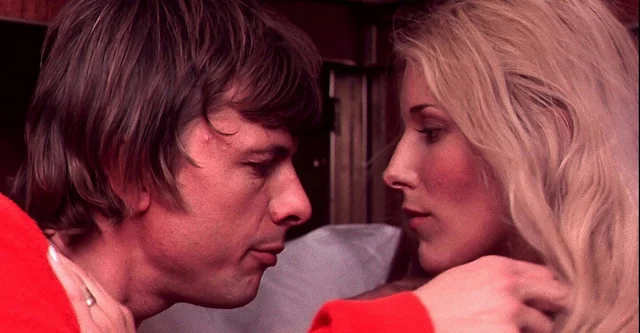Cast: Delphine Seyrig, John Karlen, Danielle Ouimet, Andrea Rau, Paul Esser, Georges Jamin, Joris Collet, Fons Rademakers. Screenplay: Pierre Drouot, Harry Kümel. Cinematography: Eduard van der Enden. Art direction: Françoise Hardy. Film editing: Denis Bonan, August Verschueren. Music: François de Roubaix.
Daughters of Darkness is a horror movie loaded with style, featuring Delphine Seyrig in what feels a bit like a camp sendup of her mysterious woman in Last Year at Marienbad (Alain Resnais, 1961). It’s about a couple of newlyweds who come under the spell of a woman who claims to be the Countess Elizabeth Báthory, the 17th-century Hungarian serial killer whose story became a staple of vampire lore. Seyrig is a treat as the undead countess, slinking about in a variety of outfits that include a silver-lamé dress which cinematographer Eduard van der Enden films with a star filter to jazz up its dazzle. It’s all very creepy and over-the-top, but unfortunately, it also leans heavily on the old trope of queerness as decadence, a too-common feature of films from its era. The husband, Stefan (John Karlen), seems to be the boy toy of a man he calls “Mother,” which causes some tension with Valerie, his new wife (Danielle Ouimet), who keeps insisting that he call his mother to tell her that they’re coming for a visit. Stefan turns out to be a bit of a sadist, driving Valerie into the arms of the countess. Karlen seems to have landed the role of Stefan in part because he was already known from another vampire story, the TV series Dark Shadows. Today, he’s probably mostly remembered as Harvey, the husband of Tyne Daly’s Lacey, on the series Cagney & Lacey.



















